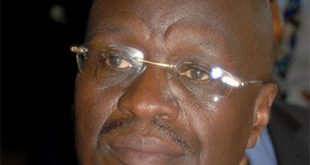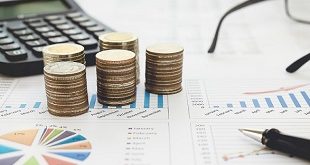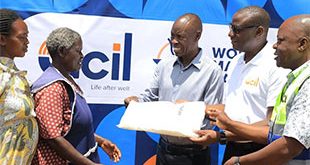
But reopening of economy will boost growth in the year through June to 4.5% and 6% in 2022/23
Kampala, Uganda | ISAAC KHISA | Uganda risks going into a new borrowing spree in the event that the government extends subsidies to essential commodities to cushion the soaring prices, according to Moses Kaggwa, Director Economic Affairs at the Ministry of Finance, Planning and Economic Development.
Kaggwa, who spoke during a policy dialogue in Kampala dubbed ‘cushioning Uganda against global, regional and national economic shocks,’ on May.05, said introduction of subsidies including a reduction in taxes on some commodities such as fuel could see the government register a decline in revenue collections at the time the country is seeking for more revenue collections to finance the various budget priorities.
“Look, if you remove Shs100 on a litre of petrol as tax, will consumers be happy? Do you know the impact it will have to the treasury? It is Shs200billion but the consumer will not feel that impact,” he said.
“So, how much will government reduce on the retail prices on fuel to have an impact? It will not be lower than Shs500 on a litre…but look at the hole you are leaving to the treasurer. This means we shall go to the market and borrow, and then the people whom we’re trying to save with the subsidies, unlike taxes, are going to pay with interest.”
Currently the government collects Shs1, 450 on a litre of petrol as tax. Kaggwa said the government is trying to contain the surging public debt but cannot contain it with introducing subsidies at the time the country is experiencing low revenue collections.
For instance, Uganda Revenue Authority closed the 2019/20 FY with a shortfall of Shs3.6 trillion, worsened by the effects of the COVID 19 pandemic on the economy.
The taxman had a target of Shs 20.4 trillion and collected Shs16.8 trillion. The year before, FY2018/19, the target was Shs 16.4 trillion and the shortfall was nearly Shs700 billion. In FY2017/18 it was Shs659 billion and in FY 16/17 it was Shs377 billion.
Yet the country spend a bulk of its domestic revenue on debt servicing. On the other hand, Uganda’s public debt stood at Shs 73.78trillion compared to the Gross Domestic Product of Shs148trillion.
Kaggwa said subsidies are good but only if there’s certainty on the duration of the crisis and the availability of funds to bridge the forfeited revenue collections. He said the surging prices has been caused by external factors that the government is unable to control.
“We have seen in some our neighboring countries where the moment fuel subsidies ran out, there were fuel shortages and increases in prices. So they got a loan to continue providing the subsidy,” he said, in reference to the Kenya’s recent fuel crisis.
“Our debt is already ballooning…and we want to contain it. We can’t afford to provide subsidies and seek for more loans. That is the delicate balance that the government has to undertake to ensure that the economy does not go under because some of these things could lead us into a recession.”
Uganda has been experiencing a surge in commodity prices since the re-opening of the economy in January this year, with the petrol prices jumping 19% this year to an average Shs 5,300 per litre.
A 1kg bar of soap now costs between Shs7, 500 and Shs10, 000 up from about Shs 4,500 in January this year.
Similarly, a kilogramme of rice goes for between Shs4,500 and Shs5,000, depending on the type up from Shs3,000, while that of maize flour has climbed to Shs3,000 from Shs1,500 during same period under review.
However, Julius Mukunda, the executive director at the CSBAG said the government should regulate prices for a section of commodities, especially fuel as it does with electricity.
“Let us not ran away. Umeme cannot wake up today and increase the price of electricity without the permission of the Uganda Electivity Regulatory Authority,” he said.
He said there’s need for the government to also stir production and consumption to stimulate economic growth.
Advocates Coalition for Development and Environment, Executive Director, Arthur Bainomugisha, said the journey of Uganda’s economy is not smooth due to regional and global shocks.
He, however, said DRC’s admission to the East African Community is excellent news.
“Almost 90million people have joined the group, which will facilitate trading thus improvement on Uganda’s economy. We need to trade amongst ourselves in East Africa,” Bainomugisha said.
Pamela Mbabazi, Chairperson of National Planning Authority said the agency has drafted an import substitution action plan that identifies and prioritizes key strategic commodities whose domestic demand should be increased or created.
She said the selection of these commodities have been based on the analysis of Uganda’s local industrial production capacities and able to meet local and regional demands.
She said the prioritized commodities includes petroleum products, iron and steel, medical and pharmaceutical products, veterinary drugs and medicines, cereals, plastics, textile, soap, fertilizer, sugar.
Meanwhile, Kaggwa said reopening of East Africa’s third-biggest economy will boost growth in the year through June to 4.5% and 6% in 2022-23, partly underpinned by government spending.
He said the country is investing in oil infrastructure projects to enable the country to start pumping crude oil in 2025. The dialogue was organised by Advocates Coalition for Development and Environment, an independent public policy research and advocacy organisation in partnership with the government and the other civil society organisation.
****
 The Independent Uganda: You get the Truth we Pay the Price
The Independent Uganda: You get the Truth we Pay the Price



